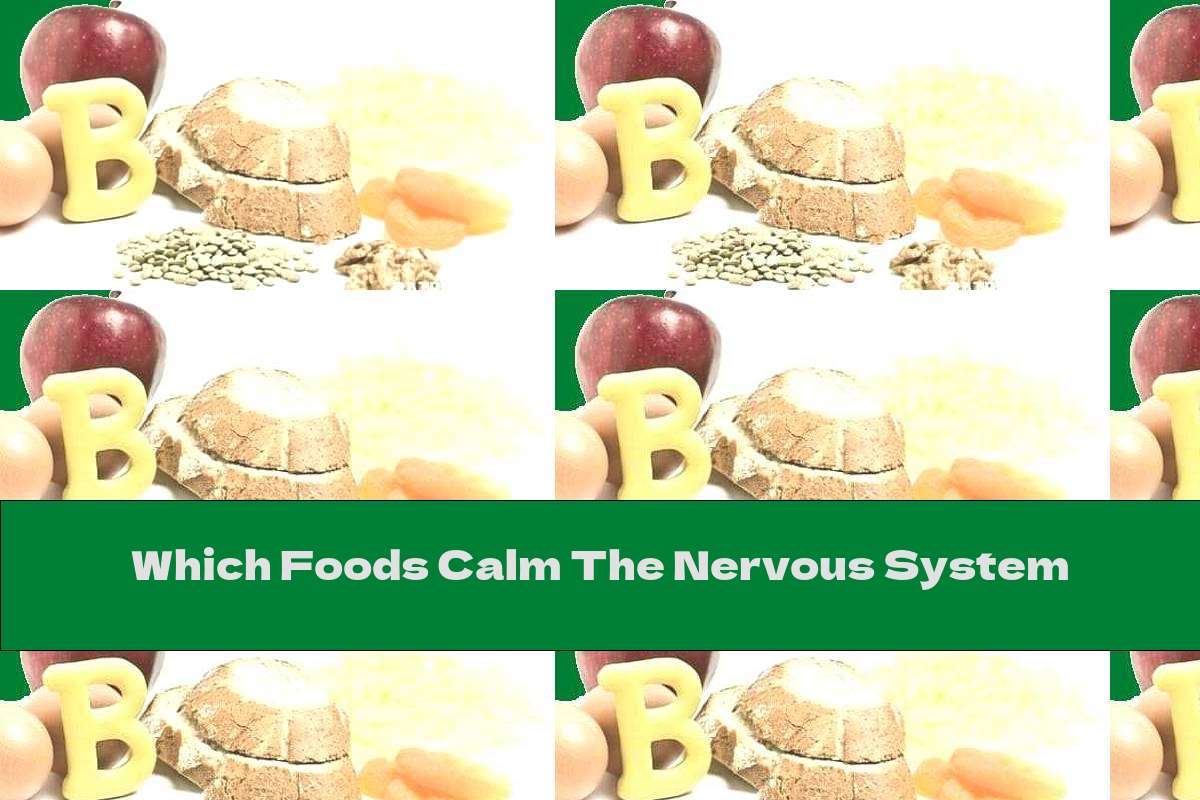Which Foods Calm The Nervous System
 Author: Marko Balašević
Time for reading: ~2
minutes
Last Updated:
August 08, 2022
Author: Marko Balašević
Time for reading: ~2
minutes
Last Updated:
August 08, 2022

CHAPTERS (Table Of Contents)
In this article, learn more about Which Foods Calm The Nervous System. Which foods calm the nervous system - part 1.
Tension and stress are an integral part of our time and we seem to be so used to them that we rarely pay the necessary attention to them. We usually associate the causes of such conditions with our work or family, but few people know that their real causative agents are hidden in our physiology, in particular, in breathing.
Normal inhalation and exhalation of air from a person at rest is equal to 6 liters per minute, but we usually take in 2 liters more. This is explained by the fact that we breathe deeper and more often than our ancestors who lived 80-100 years ago. It turns out that we are constantly in a state of chronic hyperventilation . That is why we constantly suffer from chronic stress, which is the result of a decrease in carbon dioxide in the blood.
Yoga practitioners claim that regular exercise helps them reduce the amount of air they take in, thus improving concentration, quality of sleep and life in general. Of course, whether we will focus on yoga or not is a matter of personal choice, but before embarking on any breathing exercises, consultation with a doctor is recommended.
Food and nerves
The state of the nervous system is directly affected by substances that enter the human body through food. Scientists are carefully studying a list of vitamins, trace elements and organic compounds, the use of which helps to calm the nervous system in a natural and safe way. Let's see who they are:
- B vitamins
They ensure the normal functioning of the nervous system. Research has shown that one of the first symptoms of a deficiency of these vitamins in the body is tingling in the extremities. It is the result of damage to the myelin sheath that protects neurons. Vitamins from group B and in particular B 12 help for its recovery. Vitamin B 6 is also important - it is directly involved in the production of serotonin and has a huge impact on the work of neurotransmitters - substances responsible for transmitting information from one neuron to another. . Vitamin B 3 also deserves special attention, as it contributes to the production of substances necessary for the normal functioning of the brain.
- Vitamin E.
Regulates the activity of the nervous system and helps to relax and calm the nerves.
- Vitamin C
Responsible for the synthesis of substances necessary for the functioning of the nervous system, calms it.
- Vitamin A
Favorably affects the health of the eyes, including the condition of the optic nerve.
- Omega 3 fatty acids
They help a person to calm down quickly, improve the functions of the nervous system, concentration, memorization of information, etc.
- Magnesium
Improves blood circulation and has a positive effect on the condition of muscles and nerves.
- Antioxidants
They strengthen the nervous system and help calm the nerves.
- Selenium
The element tones the nervous system and improves its work.
- Carbohydrates
Without carbohydrates, the production of serotonin (one of the hormones of happiness) is impossible. Its main advantage is that it allows for quick calming and relaxation. In addition, carbohydrates help the body reduce the level of cortisol (a stress hormone) in the blood.
In the second part of the article we will introduce you to 11 top foods that calm the nerves .
- Which foods calm the nervous system - part 2
- Which foods reduce stress and which increase it
- How to eat when we are under stress
- 14-day diet plan to reduce stress
Related Articles
- Nutrition for Respiratory Health: Supporting Your Lungs with the Right Foods
- The Ultimate Guide to High Gluten Foods: Benefits, Sources, and Recipes
- The Ultimate Guide to High Gluten Foods: Effects, Benefits, and Recipes
- Nutrition and Libido: Enhance Your Sex Drive with the Right Foods
- Understanding E+631 in Nutrition: Health Implications, Common Foods, and Alternatives